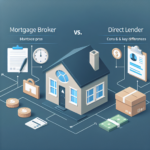Introduction
Managing debt is a significant concern for many individuals and families. With high-interest rates, debt can quickly spiral out of control, leading to financial stress and limited financial freedom. However, with strategic planning and disciplined execution, you can save thousands on interest and accelerate your debt payoff. This article explores proven strategies to help you achieve financial independence faster.
Understanding Your Debt
Before diving into strategies for debt payoff, it's essential to have a clear understanding of your debt. Start by making a list of all your debts, including:
- Credit card balances
- Student loans
- Auto loans
- Mortgages
- Personal loans
For each debt, note down the total amount owed, interest rate, and minimum monthly payment. This information will serve as the foundation for your debt payoff plan.
Debt Payoff Strategies
There are several strategies to consider when working to pay off debt. Each has its unique advantages, and choosing the right one depends on your financial situation and personal preferences.
The Snowball Method
This popular debt reduction strategy involves paying off your smallest debts first while making minimum payments on larger debts. Here's how it works:
- List your debts from smallest to largest.
- Focus on paying off the smallest debt first while maintaining minimum payments on the others.
- Once the smallest debt is paid off, move on to the next smallest debt, adding the amount you were paying on the first debt to the second.
- Repeat this process until all debts are paid off.
The psychological benefits of this method include a sense of accomplishment as debts are paid off, which can motivate you to continue.
The Avalanche Method
This strategy focuses on paying off debts with the highest interest rates first, which can save you more money on interest in the long run. Here's how it works:
- List your debts from highest to lowest interest rate.
- Prioritize paying off the debt with the highest interest rate while making minimum payments on the others.
- Once the highest interest debt is paid off, move to the next highest interest rate debt.
- Continue this process until all debts are eliminated.
While this method may take longer to see results, it can lead to significant savings on interest.
Balance Transfer Cards
Consider using balance transfer credit cards, which offer a low or 0% interest rate for an introductory period. This can help you pay off high-interest credit card debt more quickly. However, be aware of any balance transfer fees and ensure you can pay off the balance before the introductory period ends to avoid high-interest rates.
Debt Consolidation
Debt consolidation involves combining multiple debts into a single loan with a lower interest rate. This can simplify your payments and reduce the total interest paid over time. Options for debt consolidation include:
- Personal loans
- Home equity loans
- Debt consolidation loans
Ensure that the new loan has a lower interest rate than your current debts to maximize savings.
Creating a Budget
A budget is a crucial tool in debt payoff. By tracking your income and expenses, you can identify areas to cut back and allocate more funds towards debt repayment. Here's a simple budgeting plan:
| Monthly Income | Amount |
|---|---|
| Salary | $3,500 |
| Side Hustle | $500 |
| Total Income | $4,000 |
| Expenses | Amount |
|---|---|
| Rent/Mortgage | $1,200 |
| Utilities | $200 |
| Groceries | $400 |
| Transport | $150 |
| Entertainment | $100 |
| Debt Payments | $500 |
| Total Expenses | $2,550 |
By reducing discretionary spending, you can increase your debt payment allocation and pay off debts faster.
Emergency Fund
Building an emergency fund can prevent you from accruing more debt in case of unexpected expenses. Aim to save at least three to six months' worth of living expenses. This fund provides a safety net, allowing you to focus on debt repayment without financial disruptions.
Conclusion
Paying off debt and saving on interest requires determination and strategic planning. By understanding your debt, choosing the right payoff strategy, and maintaining a disciplined budget, you can achieve financial freedom faster. Implement these proven strategies and take control of your financial future today.




